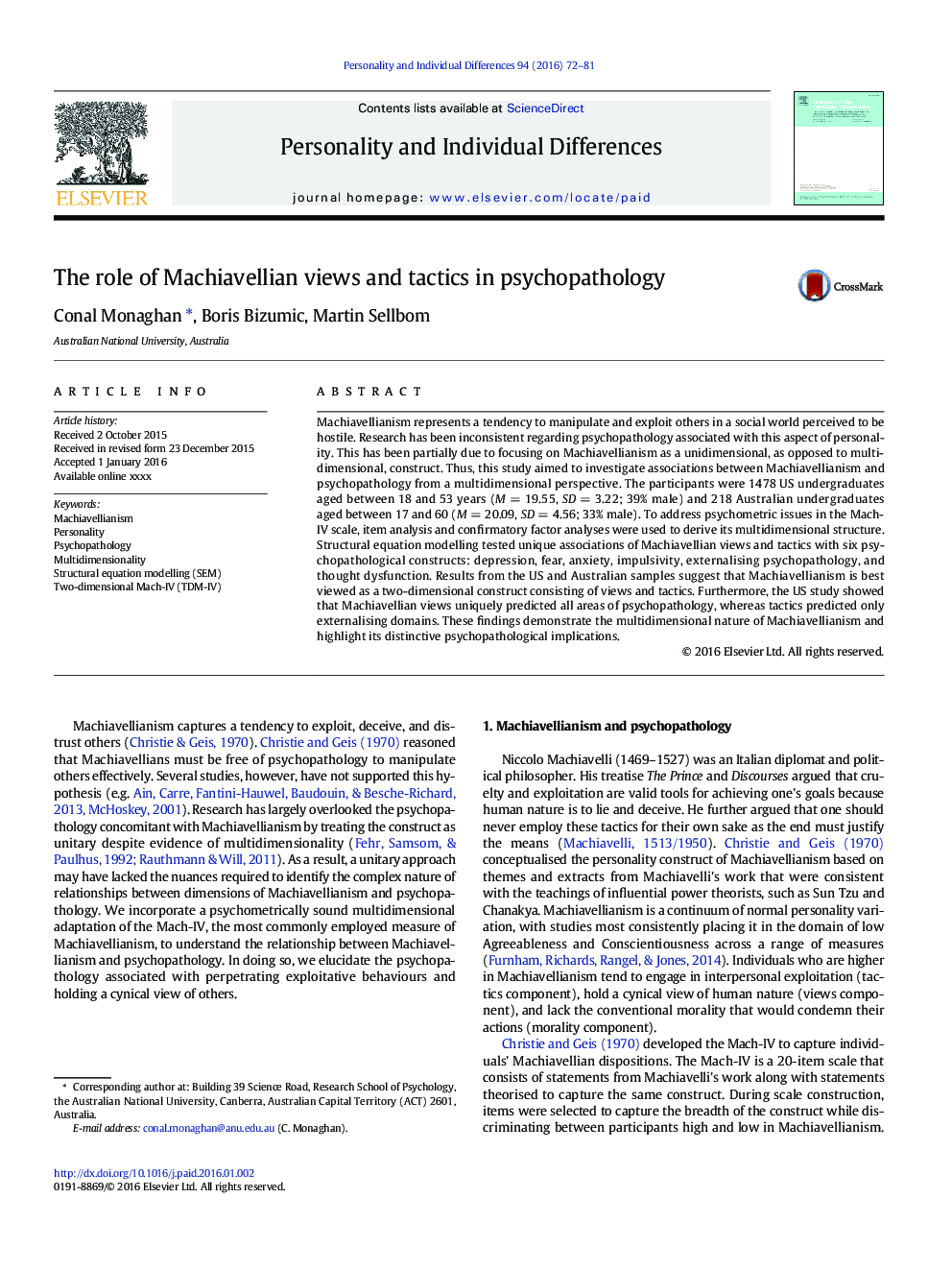| Article ID | Journal | Published Year | Pages | File Type |
|---|---|---|---|---|
| 7250307 | Personality and Individual Differences | 2016 | 10 Pages |
Abstract
Machiavellianism represents a tendency to manipulate and exploit others in a social world perceived to be hostile. Research has been inconsistent regarding psychopathology associated with this aspect of personality. This has been partially due to focusing on Machiavellianism as a unidimensional, as opposed to multidimensional, construct. Thus, this study aimed to investigate associations between Machiavellianism and psychopathology from a multidimensional perspective. The participants were 1478 US undergraduates aged between 18 and 53Â years (MÂ =Â 19.55, SDÂ =Â 3.22; 39% male) and 218 Australian undergraduates aged between 17 and 60 (MÂ =Â 20.09, SDÂ =Â 4.56; 33% male). To address psychometric issues in the Mach-IV scale, item analysis and confirmatory factor analyses were used to derive its multidimensional structure. Structural equation modelling tested unique associations of Machiavellian views and tactics with six psychopathological constructs: depression, fear, anxiety, impulsivity, externalising psychopathology, and thought dysfunction. Results from the US and Australian samples suggest that Machiavellianism is best viewed as a two-dimensional construct consisting of views and tactics. Furthermore, the US study showed that Machiavellian views uniquely predicted all areas of psychopathology, whereas tactics predicted only externalising domains. These findings demonstrate the multidimensional nature of Machiavellianism and highlight its distinctive psychopathological implications.
Keywords
Related Topics
Life Sciences
Neuroscience
Behavioral Neuroscience
Authors
Conal Monaghan, Boris Bizumic, Martin Sellbom,
